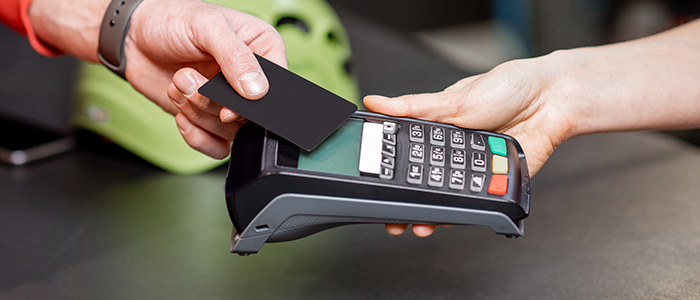In the digital age, data reigns supreme, and within the hospitality industry, guest data holds immense value. It unlocks personalized experiences, targeted marketing campaigns, and ultimately, increased revenue. However, with such valuable information comes a significant responsibility: protecting it. For hotels, ensuring the security of guest data is not just a legal and ethical obligation, it’s the foundation for safeguarding their reputation and fostering trust with guests.
This is where PCI DSS 4.0 enters the picture. This latest iteration of the Payment Card Industry Data Security Standard (PCI DSS) raises the bar for data security, empowering hotels with a comprehensive framework for protecting sensitive cardholder information.
Understanding PCI DSS 4.0: A Deep Dive
PCI DSS 4.0 is an internationally recognized set of security requirements designed to secure the handling, storage, and transmission of cardholder data. It applies to any organization that accepts, transmits, or stores such information, including hotels that process guest credit card payments.
The standard outlines six core requirements that all hotels must comply with:
- Build and Maintain a Secure Network: This includes implementing firewalls, intrusion detection and prevention systems, and regularly updating software and firmware.
- Protect Cardholder Data: This involves encrypting cardholder data at rest and in transit, and restricting access to this data to only authorized personnel.
- Maintain a Vulnerability Management Program: This requires hotels to regularly identify and remediate vulnerabilities in their systems and networks.
- Implement Strong Access Control Measures: This involves establishing strong password requirements, multi-factor authentication, and limiting access to cardholder data based on the principle of least privilege.
- Regularly Monitor and Test Networks: This includes monitoring for suspicious activity and regularly testing networks for vulnerabilities.
- Maintain an Information Security Policy: This policy should outline the hotel’s commitment to data security and detail the procedures for handling cardholder data.
Why Hotels Must Take PCI DSS Seriously?
As frequent targets, hospitality merchants rank #1 in terms of payment card fraud frequency. Driving massive volumes of card transactions from guests globally, persistent compliance with PCI DSS remains mission critical for hotels seeking to avoid major compromise.
And with ever-sophisticated hacking campaigns launching new attacks through POS systems, Wi-Fi networks and loyalty portals, PCI DSS keeps evolving as well to address emerging channels like mobile check-in apps securing guest data by design.
Simply put – adherence to prescriptive PCI DSS, safeguards guests’ card data, devices, identities and overall digital experiences during hotel stays.
This is precisely why leading hotels participate on PCI Council boards themselves – to provide input into advancing protections for hospitality. They invest heavily in 24/7 security operations centers with PCI objectives ingrained day-to-day, not just annually.
For guests, seeing rigorous security embedded in their hotel means peace of mind unlocking the full travel experience.
How PCI DSS Safeguards Guests?
So, what exactly does PCI DSS enforcement actually provide guests in terms of security?
Quite a lot – including but not limited to:
1. Protecting Payment Systems
PCI DSS requires hotels implement advanced measures across critical systems that guests directly interact with:
– Point-of-sale (POS) terminals must utilize approved card readers, handle/store minimal necessary data only when absolutely required, encrypt everything end-to-end
– Back-end payment processing systems need isolation, access controls, file integrity monitoring and encryption
– Payment pages must enforce TLS v1.2+ and mandate cybersecurity awareness training for web developers
Adhering to PCI DSS means all components handling guest card data must uphold stringent safeguards.

2. Shielding Hotel Networks
Similarly, PCI DSS sets standards to protect sensitive guest information traversing hotel networks:
– Isolating payment processing systems from other networks
– Requiring firewalls between internal network segments
– Mandating encrypted Wi-Fi access (heightened for admin/back office traffic)
– Calling for advanced cyber-threat detection controls to be implemented
This shields guests’ cardholder data and other personal information from exposure or theft via network compromise.
3. Ensuring Software Security
Custom and third-party software handling payments also undergoes PCI-prescribed evaluation:
– Assessing custom software like mobile apps for secure architecture during development
– Testing for vulnerabilities in apps before launch using static, dynamic analysis
– Planning incident response in case of software compromise
– Reviewing vendor software security measures
Such oversight prevents guest data theft through vulnerable payment software.
4. Promoting Physical Security
PCI DSS also covers physical protections at hotels to prevent terminal tampering, card skimmers or theft of stored data such as:
– Storing sensitive records and data in locked locations only accessible by certain staff
– Physically securing devices like POS terminals
– Mandating ID badges and limiting data center access
By discouraging device tampering, hotels prevent threats like card skimming directly preserving guests’ payment security.
5. Third-Party & Supplier Oversight
With vendors posing growing threats, PCI DSS is expanding mandates for validating partner security in PCI DSS 4.0 releasing soon. Hotels must request and review partner PCI compliance to ensure guest card safety is upheld everywhere.
In essence, PCI DSS tackles guest data security across the hospitality technology stack – setting clear requirements enforced through compliance validation.
Emerging Protections with PCI DSS 4.0
As cyber-threats and payment modalities evolve exponentially, so too are PCI data standards via 4–5 year milestone updates.
PCI DSS 4.0 implementing in 2024 will raise security requirements for hotels particularly around:
– Enhanced multi-factor authentication (MFA) for account access
– Mandating software security by design from inception
– Increased deployment of AI-based threat detection
– Assessing third-party provider protections
– Guidance for securing emerging channels like mobile and cloud
As hotels undergo PCI DSS 4.0 adoption over the next 18 months, guests will directly benefit from these augmented protections tailored to combat modern cyber fraud tactics.
Hotels pursuing not just compliance but embracing PCI DSS principles to drive security excellence will be best positioned to deliver confidence-inspiring guest experiences in years ahead.

Prioritizing Guest Security with PCI DSS
Achieving sustained PCI DSS compliance does require effort yet pays dividends via guest trust and loyalty. With standards advancing through 4.0 to mandate assessed security precautions fortifying payment systems, hotel networks, physical facilities and business partnerships – guests can feel more reassured their personal information remains protected during hotel stays.
However – PCI DSS does not need to be a painful compliance activity but rather an enabler of enhanced guest experiences when leveraged holistically.
Turning PCI DSS into Competitive Advantage
Top hospitality brands with significant PCI DSS experience do not just view standards as restrictive checklists. Instead, they build world-class security operations centers staffed 24/7 to integrate PCI DSS protections so deeply that they become business as usual.
With dedicated resources and executive support, they optimize costs by taking an integrated approach across availability, network security and IT GRC teams so PCI DSS feeds into wider security objectives.
They also realize guests demand frictionless yet fully safe digital engagement. So, they align user experience designers with security architects to build PCI-compliant payment systems designed for usability.
Further by combining PCI DSS security principles with insurance coverage, brands reassure guests that incidents will be covered as well, preventing trust erosion.
Finally, these brands proactively advertise adherence to PCI data standards during booking journeys and on-location stays so guests explicitly know their details are protected to strict industry benchmarks. This strengthens loyalty.
In short – they transform PCI DSS from a periodic audit activity into the foundation of competitive differentiation.
You too can follow their lead by taking a strategic approach:
Strategic Steps to PCI DSS Success
1. Make compliance a collective business priority with security championed from the C-suite down to front desk staff. Stop seeing PCI DSS as just an IT audit requirement.
2. Take a data-centric approach that focuses first on what guest information gets processed where and locking that down. Don’t let card data spill across random datastores.
3. Adopt PCI DSS 4.0 aggressively to overhaul protections before waiting till the last minute. Pilot advanced measures like biometrics and tokenization even if not formally required yet.
4. Unify security monitoring using a SIEM platform and SOC team to get full visibility tying PCI DSS security controls together to better analyze risks.
5. Market PCI DSS adherence to guests as a trust signifier that their data is managed to strict global safety standards exceeding legal minimums.
6. Make compliance sustainable via policy automation, recurring penetration tests and quarterly tabletop crisis simulation exercises.
Following these steps will help your hotel gain a security posture and guest confidence on par with top operators – thanks to PCI data standards!
Partnering For PCI DSS Success
Of course, PCI DSS mastery requires knowing the standards extensively plus staying on top of new releases like upcoming 4.0 additions and hotel-specific guidance.
As industry leaders, Advanced Hospitality Technologies consults hotels across the US on achieving sustainable PCI DSS compliance. We offer proprietary tools that simplify meeting requirements through automated policy enforcement, control validation and real-time threat analytics.
Contact us to schedule a free PCI DSS risk assessment and roadmap strategy session. Our experts can analyze your infrastructure, processes and compliance gaps to create a tailored roadmap, cost model and 12-month execution plan optimized for efficiency.
We’ll help you turn PCI DSS from a liability into an asset that instills guest loyalty while keeping data ultra-secure.
Additional Resources:
- PCI Security Standards Council: https://www.pcisecuritystandards.org/
- PCI DSS 4.0 Requirements and Resources: https://www.pcisecuritystandards.org/standards/
- PCI DSS 4.0 FAQs: https://www.pcisecuritystandards.org/standards/



